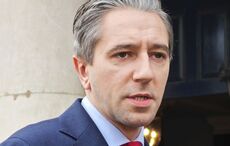Nancy Soderberg, the key White House aide to President Clinton on Northern Ireland, has revealed she was the subject of an FBI investigation on suspicion she had leaked secret documents to Sinn Fein leader Gerry Adams.
She told an oral history project that she believed that the FBI targeted her because of her critical role in persuading President Clinton to give Adams a visa to come to the US in January 1994 in direct opposition to the FBI recommendation. Soderberg was Deputy National Security Advisor and later an Ambassador to the UN.
Talking to the Miller Center at the University of Virginia which undertook the William J.Clinton Presidential Oral History Project, Soderberg stated: “The FBI decided to investigate me for having leaked inappropriate information to Gerry Adams, which again was just ridiculous. But it was their comeback to me; they still couldn’t get over the Gerry Adams visa.
"Now, I think what happened was there was some conversation they overheard—it must have been me, because they thought I was the target, but I had no idea—talking to somebody in Ireland about something sensitive. I don’t even remember what it was now.
"Trying to watch them investigate this was ridiculous. They couldn’t find the report; they finally found it, but it was the wrong report. Or they couldn’t remember if it was the right report. Or it was, 'Have you ever seen anything like this document?' It was ridiculous, but that took another six months, and that was concurrent with this. So I was just going nowhere fast. It’s the worst feeling. You’re guilty until proven innocent in these circumstances.”
Soderberg also revealed she thought highly of Adams personally during the negotiations with him.
“He’s funny; he’s soft spoken; he likes to joke around a lot. He’s very upbeat. He gets despondent and frustrated, but he never loses the big picture. He’s a real leader, a visionary on where this is going. He gets it; he doesn’t get flustered by the little things.
"He’s an honest, honorable person when you deal with him. I would never have thought I would say this about somebody with his background, but I got to trust him, after a long time. In their minds, the Irish are freedom fighters, patriots, and they have an honor code they live by. They all do; it’s very interesting.
"I still to this day don’t know exactly what happened at Canary Wharf (Canary Wharf bombing on February 9, 1996 when the first IRA ceasefire broke down) I don’t think Adams has ever told the story.
“In my dealings with Adams, he was honorable and honest and frank about everything he could and couldn’t do. He never once lied to us, never once said he was going to do something and then didn’t do it. He always did it. It was frustrating, because to get him to commit to do something was really difficult. But once he committed, he would do it.
“He called us right before (Canary Wharf) happened and said essentially, I’m hearing really troubling things. I think something bad is about to happen. Then two minutes later we heard about the Canary Wharf bombings. I made a mistake in telling the press about the call.
"Tony (Tony Lake National Security Advisor) and I talked about it, and we figured they were going to find out, so we should just admit it. But then it blew up in our face, implying that Adams knew about the bombs ahead of time and was in on it, was lying to us.
"Just by his voice, I could tell he was trying to do the decent thing, to warn us, but it was something that was out of his control. I think he found out. He wasn’t part of the decision to do it, but he found out about it too late to do anything. That’s my guess, if I read his body language right at the time.
"The one thing he always wanted to do was prevent a split in the IRA. He wanted to bring the whole thing along. At this point—right after this incredible trip, the end of November, early December—we were so close. Canary Wharf was in January or February. It was so sad. Dick Spring, the Irish Foreign Minister, was on his way.
"We were just about to get a date for something, but it was the last gasp of the hard-liners.
"Ultimately, all it did was kill a bunch of people and slow down the process. I think ultimately it began to dawn on the people who were trying to provoke the violence that the violence actually ended up slowing down the progress. I think they ultimately got that.
"To Adams’ credit, he ended up pulling it back together again and getting it restored that fall. It’s predictable. There are always bumps in the road on these things. But when you’re so personally invested in it, it’s so depressing."
Speaking of the first trip to Ireland in November 1995 by President Clinton she said she agreed with him that it was the highlight of his first term and possibly of his presidency.
“The crowds grew during the day and you could feel it. I talked about the trip in Texas on the campaign bus, how you can just feel it, the crowds. They looked at this man, the first sitting President of the United States to go to Belfast. They couldn’t believe that the President of the United States was taking time out of his busy work to come and see them. You could see that they thought, Wow! This is really cool. They were so appreciative.
“Then he had stuck his neck out on the visa for Adams—for the first time in their lives, they could see a better life. Northern Ireland is dirt poor. The people live in tiny little houses and don’t have jobs. The unemployment rate is huge. All of a sudden they thought, Maybe my life is about to get better because the President of the United States is here. And, in fact, it has gotten better because he did it.
“The highlight was the night in the square when he lit the Christmas tree. More people came out than we expected, hundreds of thousands. They were all happy and couldn’t believe this man had brought them a chance for a better life. At that point, the people were so much farther ahead than the politicians. The politicians still weren’t even talking to each other. The fact that the people came out and said, 'Yes, this is where we want to go' forced the politicians to think a little bit differently. It was so carefully planned.
"Every step Clinton took, and every hand he shook, was carefully choreographed. We were up until 3:00 or 4:00 in the morning.
"I remember Chris Dodd calling me because we hadn’t worked out Gerry Adams’ handshake right. We had to move it from one place to another. It all worked out beautifully, but it was really difficult to orchestrate it. It was definitely a real high.”




Comments